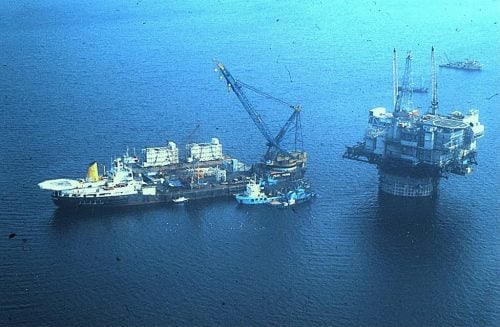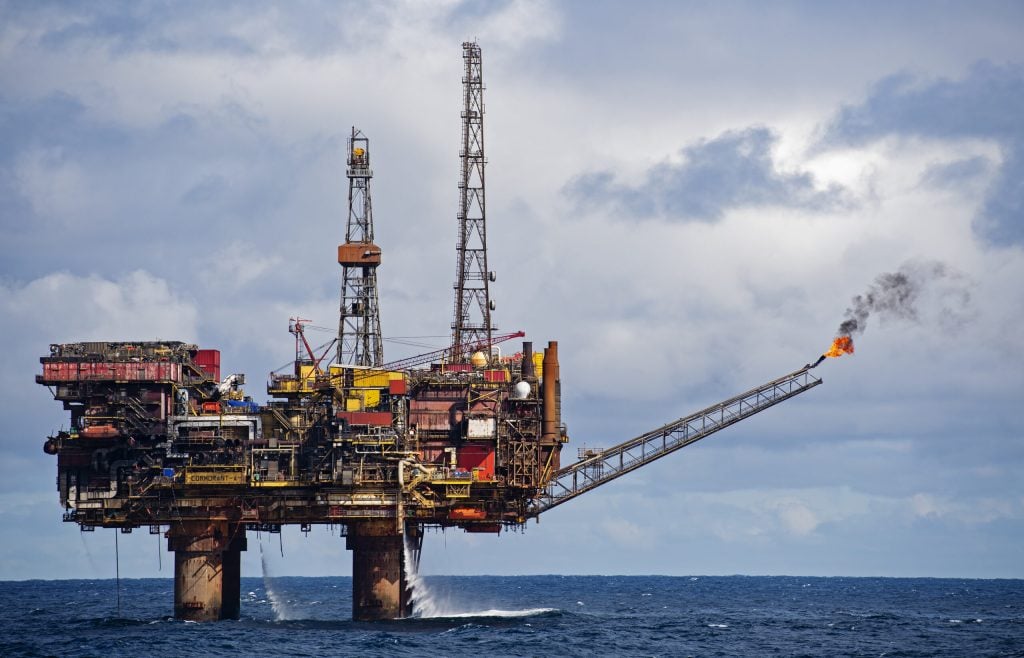Canada’s Canadian Natural Resources International has decided to shut down the Ninian field, one of the largest oil fields in the North Sea, given difficult market conditions, due to high natural gas production costs, unexpected taxes and lower UK business prospects.
The company is working to “accelerate the abandonment” of its two remaining Ninian South and Ninian Central platforms – in the 45-year-old oil field – Ninian South and Ninian Central; Which is the largest platform established in the United Kingdom, according to a report seen by the specialized energy platform.
The company reduced 65 million barrels of oil equivalent from its proven reserves; The Ninian field, one of the largest oil fields in the North Sea, has become “economically unsustainable,” Energy Voice reported on March 3.
Exceptional Profits Tax
Canadian Natural Resources cited “the impact of rising natural gas and carbon costs” on the decision to close.
The company did not directly mention the UK windfall tax, which was imposed last year to create the country’s 75% overall tax rate for the industry, as experts say the tax likely played a role in the decision.
In a statement to the Energy Voice platform, Canadian Natural Resources International said it “has no further drilling activity planned” and is proceeding with the closure of the south and center platforms, along with the field’s broader hub infrastructure.
Moreover, the company made the decision after a detailed review of the opportunities of the Ninian field – one of the largest oil fields in the North Sea – and the expected cost burdens, and concluded that the field is not economically sustainable.
Analysts are likely to stop the production and operation of these platforms for several years, and lead to a decrease in the number of jobs in the long term in the North Sea.
Canadian Natural Resources confirmed that it will continue to operate its Tiffany platform in the UK’s North Sea, as well as manage its offshore operations in Africa from its headquarters in Aberdeen, Scotland.
The impact of the British financial system
“This news is a stark example of how confidence to invest in energy security in the UK has been shaken by the country’s current financial system,” said Mike Thulin, director of sustainability at Offshore Energy UK (OEUK) Trade Authority.
The Ninian field platforms are a unique asset that has contributed to the creation of thousands of jobs and millions of pounds sterling in the United Kingdom, according to information monitored by the specialized energy platform.
“We have written to (Chancellor of the Exchequer), Chancellor Jeremy Hunt, urging him to focus on creating a long-term competitive system that supports investment in the energy sector,” said Mike Thulin.
He added, “We continue to warn that unexpected taxes imposed last year have shaken investor confidence and the investment plans of oil companies in the North Sea.”
He explained: “Two sudden taxes on the oil and gas sector, as well as an unexpected tax on electricity generators, have significantly undermined the appetite of international companies and investors to invest in the UK.”
He called for “the spring budget to address energy security, as the marine energy sector plays a vital role in supporting the energy transition.”

The importance of the Ninian field
Ninian, one of the largest oil fields in the North Sea, was discovered in 1974 and began production in 1978. “Ninian is one of the giants of the industry,” says Professor Alex Kemp, an oil economist at the University of Aberdeen and author of The Official History of the North Sea.
He pointed out that the Ninian Central platform, which was built in Lake Keshorn on the west coast of Scotland, is the largest platform by volume ever built for the United Kingdom.
The Ninian field became the third field in the sector to produce more than one billion barrels of oil equivalent, after the Brent and Forties fields, according to what was published by the Energy Voice platform on March 3.
Professor Kemp said: “As a result of a windfall tax of 35% on the industry last year, the North Sea now has an overall tax rate of 75%, which has affected the Ninian field, one of the largest oilfields in the North Sea.”
Also read..

Leave a Reply